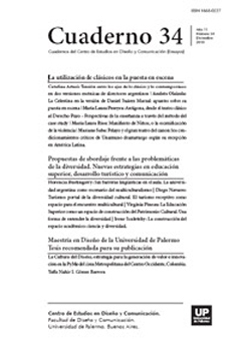Pelayo y el gran teatro del canon: los condicionamientos críticos de Unamuno dramaturgo según su recepción en América Latina
Abstract
This work presents a specific approach to Unamuno theatre plays, which consists in considering them as a
result arisen from certain canonical critic conditioning prescribed by the philologist Menéndez y Pelayo and that weighed
on some members of the `98 Generation. Latin American stagings attest the Unamuno´s dramatic project viability, considering that was in this continent where its work was accepted, whereas Spain always meant a somewhat hostile land for the
acceptance of theater productions based on Unamuno´s texts. The article, proposes to tie the reflection on the pioneering
work of Menéndez y Pelayo with the transformed concept of critic that appears in Unamuno, and to emphasize in that
passage the manipulation of the golden theater like original material of a literary canon not only politician but social. And
against this background, it is also possible to propose a concrete analysis of the Unamuno´s dramatics like the utopian
construction of a modern and experimental theater that picked up the popular bases of the baroque and resigned the
pantomime action without resigning to the word nor to the intellectual reflection, and that simultaneously managed to
register it among the canonical authors of the Spanish scene.
References
Aszyk, Urszula. (1989). “Los modelos del teatro en la teoría dramática de Unamuno, Valle-Inclán y García Lorca”, en Actas del IX Congreso de la Asociación Internacional de Hispanistas. Berlín: Vol. II.
Banús, Enrique y Galván, Luis. (2000). “Entre Menéndez Pelayo y Ángel Valbuena: ¿Calderón denostado, olvidado y redescubierto?”, Calderón 2000, I.
Del Puerto Gómez Corredera, María. (2007). “El devenir del teatro de Unamuno en Latinoamérica”, Revista Signa 16.
Even-Zohar, Itamar. (1979). “Polysystem theory”, Poetics Today, Vol. 1: 1 – 2.
Mainer, José-Carlos. (1998). “Sobre el canon de la literatura española del siglo XX”, en AA.VV., El canon literario, Enric
Sullà (compilación de textos y bibliografía). Madrid: Arco Libros.
Saba, Mariano. (2007). “Unamuno dramaturgo: El otro y su recepción temprana en Buenos Aires”, Teatro XXI. Revista del GETEA, Año XIII, No. 24, Otoño 2007. Facultad de Filosofía y Letras, Universidad de Buenos Aires.
Santoveña, Antonio. (1998). “Menéndez Pelayo y la crisis intelectual de 1898”, Anuario filosófico. La Filosofía Española en la crisis de fin de siglo (1895-1905), Vol. 31, No. 60.
Unamuno, Miguel de. (1964). El otro, misterio en tres jornadas y un epílogo, Barcelona: Aymá.
(1958). Obras completas, tomos V, XI y XII. Madrid: Afrodisio Aguado.
(1951). Ensayos, tomos I y II. Madrid: Aguilar.
Los autores/as que publiquen en esta revista ceden los derechos de autor y de publicación a "Cuadernos del Centro de Estudios de Diseño y Comunicación", Aceptando el registro de su trabajo bajo una licencia de atribución de Creative Commons, que permite a terceros utilizar lo publicado siempre que de el crédito pertinente a los autores y a esta revista.


